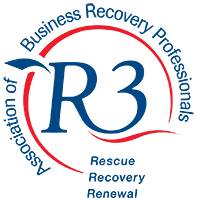Can I get a mortgage after an IVA?
Getting a mortgage is a big step in life. Anybody who reaches out to a mortgage company will need to jump through certain hoops, but for people in an active IVA, accessing a new mortgage is even more challenging.
In this article we’ll explore the process of getting a mortgage while in an IVA, starting with what an IVA is, how an IVA impacts your ability to access a mortgage, the steps you need to take to get a mortgage during an IVA, and whether getting a mortgage is easier after your arrangement has ended.
Can I get a mortgage during my IVA?
Although those in an IVA naturally focus most of their attention on repaying debts during their arrangement, the rest of their lives don’t stop while they do. People in an IVA want to pay back what they owe and work towards clean credit so they can get on with things – including buying a home.
While it is possible to get a mortgage with an IVA, there are problems to overcome. Like all debt solutions, IVAs affect a person’s credit history. That means finding a mortgage broker who will lend to you could be a challenge.
Every mortgage application is different, so it’s entirely possible that you will find a mortgage that suits you. Because of the challenges associated with IVA mortgages, however, you should always seek debt advice before going ahead with an application.
How does an IVA impact my mortgage application?
IVAs carry implications for homeowners and would-be homeowners. If you have a mortgage going into an IVA, and have a certain amount of equity in your home, you may have to release that equity towards your arrangement. If you want to buy a new home during the IVA, there are several factors to consider:
Disposable income
The first and most obvious impact an IVA will have on your getting a mortgage is its effect on your disposable income. First and foremost, an IVA is a legally binding debt solution. Your first priority during your arrangement is to pay back your debts.
Your repayment plan is based on what you can afford, taking into account your income and outgoings. If you have a mortgage going into an IVA, your IP will consider that when building your IVA proposal. Once you enter that proposal, however, you may not have enough disposable income left to cover a mortgage payment on top of your monthly debt repayments.
Credit history
All debt solutions affect a person’s credit. If you have an IVA to your name, it will show that you are taking responsibility for your debt and rebuilding your credit score – but it will also highlight your credit history to lenders, who will consider any financial issues you may have had in the past.
The average mortgage lender will view a buyer with an IVA as a risk. When considering your application, they will check your credit report and factor in any debt you hold – making it more likely they will reject you for a mortgage.
Affordability
If you do find a broker willing to lend to you, it’s unlikely you will qualify for the best mortgage rates. Any lender will run routine credit checks, which will flag up your previous poor credit. This has a knock-on effect on the interest rate you’re offered, and you may be asked to put down a larger deposit, making purchasing a new home during an IVA more expensive overall.
How do I get a mortgage during my IVA?
If you are determined to buy a new home during your IVA, it is possible. Because an IVA is a legally binding agreement, however, there is a process you must follow before you reach out to lenders.
Get the permission of your Insolvency Practitioner
For the length of your IVA, your IP will act in your name. That means they have the ultimate say on your financial affairs during that time, which includes getting a mortgage.
As an IVA holder, you will have to ask your IP’s permission to access new credit over £500. Getting a mortgage falls into that category.
Your IP will consider your financial situation, including whether you have kept up with your debt repayments, and how much disposable income you have left over. If they believe you can afford it, they may grant your request to get a mortgage.
Shop around for interest rates and deposits
Unfortunately, higher interest rates are a fixture of IVA mortgages – the interest rates you’re offered are likely to be higher than for someone with a healthy credit score. Any high street mortgage lender will view an IVA holder as higher risk, and will try to mitigate that risk by charging higher interest.
If you are in an active IVA, any deposit you put down is also likely to be significantly higher. Putting down a deposit on a property gives lenders more security that you will repay your debt.
Because someone in a debt arrangement is in a more financially precarious position to begin with, a lender will expect a higher lump sum in order to approve the mortgage.
Be wary of specialist lenders
Many IVA holders turn to specialist mortgage lenders when they want to buy a home. The appeal is obvious – unlike high street lenders, who may reject you out of hand, specialist lenders will always consider applications from IVA holders.
Although your application is more likely to be accepted, you will face similar problems with an IVA mortgage – most notably, higher interest and deposits. Specialist lenders know they are dealing with a captive audience (those who might struggle to get a mortgage elsewhere). That’s why it’s important you seek debt advice before pulling the trigger.
Can I apply for a mortgage after an IVA?
Yes, you can absolutely apply for a mortgage after an IVA, and it may increase your chances of success. Getting a mortgage during an IVA can be difficult.
Once your IVA has ended, you are no longer bound by financial restrictions. Your disposable income becomes yours again, and you can put it towards whatever you like – including getting a mortgage.
It’s understandable if you want to get on the property ladder right away, however certain mainstream lenders will refuse to work with people who have been in an IVA so recently.
How long after an IVA can I get a mortgage?
It’s easier to get a mortgage after an IVA if you wait a few years. If you apply immediately after, you will come up against the usual problems – higher interest, higher deposits, and higher chance of rejection.
That’s because your IVA, and the impact it has on your credit history, is still fresh in the eyes of the lender.
It’s a safe bet that the longer you wait to get a mortgage after an IVA, the more likely it is you will be accepted. There are a growing number of lenders who are willing to consider mortgages for IVA holders so long as the IVA is at least three years old, the holder has kept up with payments, and they’re able to see solid evidence that you’re rebuilding your credit score.
How badly does an IVA affect your credit rating?
If you get an IVA, it will go on your credit record, and will lower your credit score as a result. Your credit score (or rating) is a three-digit number between 1 and 999 – the higher the credit score, the more likely lenders are to let you borrow money for loans, mortgages, and other forms of credit.
There are various credit reference agencies – independent bodies approved by the Financial Conduct Authority (FCA) – that allow you to check your credit score. The three main reference agencies approved by the Financial Conduct Authority are Experian, TransUnion, and Equifax.
Your rating is based on the information carried in your credit report, and details of your IVA will be included, so your rating will go down. The good news is that details of any debt repayment plan are only listed on your report for a fixed amount of time.
How long does an IVA stay on your credit file?
For most, an IVA stays on your credit report for the length of time it takes you to complete the agreement – usually six years. During those five or six years, the agreement will be listed on the Individual Insolvency Register – a public register which creditors, including mortgage lenders, can search freely.
After the fix or six years has elapsed, your IVA will be removed from the public Insolvency Register and expunged from your credit history, leaving you free to rebuild your credit file.
One thing it’s important to note is that the five or six years an IVA shows up in your credit file is a minimum – even if you take advantage of the windfall clause to settle your agreement early, your IVA will still remain on your credit file for five or six years from the date the arrangement was approved.
Do I have to declare an IVA when applying for a mortgage in future?
In a word, yes. Mortgage applications come with many questions – questions brokers expect honest answers to. They are likely to ask you if you have had money trouble in the past, including whether you have used a debt solution or declared bankruptcy.
It’s important that you tell the truth. If you lie on your application, you will be committing fraud, and could end up in more trouble in the future.
Parkfield Insolvency will not charge you a fee for initial information and signposting. If you were to proceed and implement a recommended debt solution where fees are applicable, full details will be provided before setting up. Parkfield Insolvency proposes and administers Individual Voluntary Arrangements (IVAs). Advice is provided on the basis that there is reasonable contemplation of an insolvency appointment, once it is apparent that an IVA is likely to be the most appropriate debt solution. The debt solutions offered by Parkfield Insolvency Limited only apply to residents of England, and Wales.
Parkfield Insolvency is a trading style of Parkfield Insolvency Limited, Company Number 14371483, registered in England and Wales, at Dalton House, Cross Street, Sale, M33 7AR.
Peter Jackson is authorised by the Insolvency Practitioners Association to act as a Licensed Insolvency Practitioner.
To qualify for an IVA with Parkfield Insolvency, you must have a minimum of £6,000 of qualifying unsecured debt owed to two or more creditors
There is potentially a debt write off in some IVAs. However, the amount of debt written off differs for each customer depending upon their individual financial circumstances and is subject to the approval of their creditors.
Data Protection Act Registration Number – ZB399874. To find out more about managing your money and getting free advice, visit Money Helper, an independent service set up to help people manage their money.
All Rights Reserved | Parkfield Insolvency Ltd


